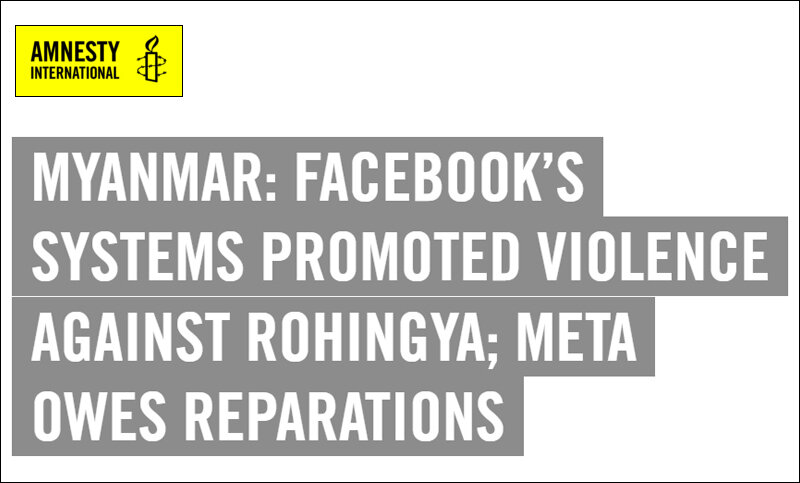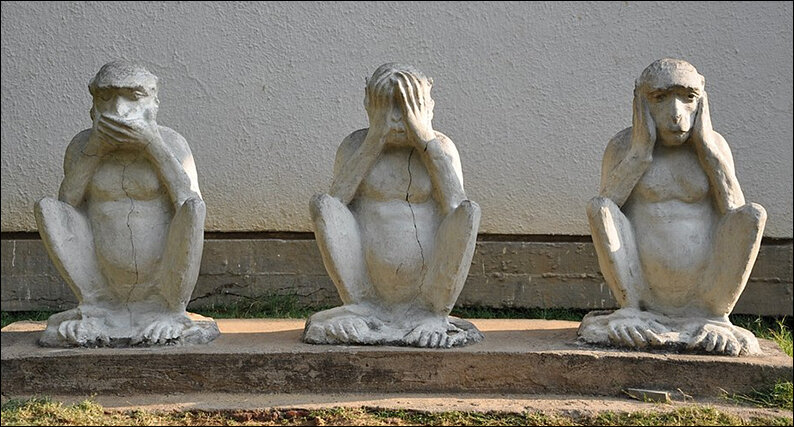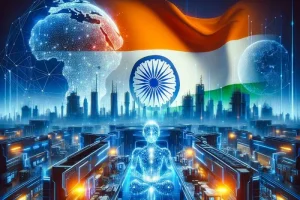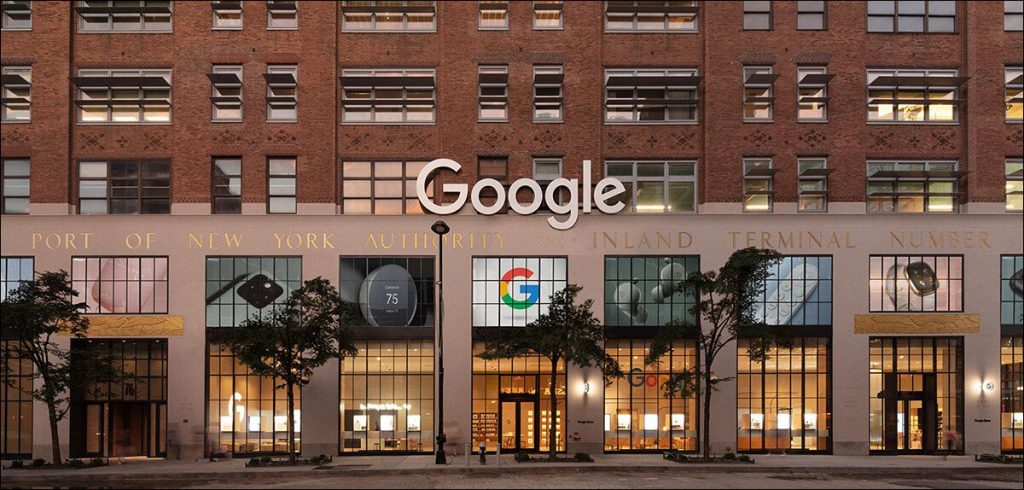The unprecedented fine on big tech across the world may not be as bad as these companies would have you believe but perhaps could save them from themselves writes Satyen K. Bordoloi
While the world has been preoccupied by Elon Musk’s (man)handling of Twitter and its employees, some other equally important tech news have been pushed to the background. One important tech news with implications for the world came from India where at the end of October the Competition Commission of India (CCI) imposed an unprecedented ₹2274 crore fine on Google.
This is not the first time Google or other tech companies have been fined across the globe. But this is what makes the implications that much ‘more’ crucial. We have to wonder if this is the beginning of the end of the free reign that tech companies worldwide have had for decades.
Sify Technologies – Digital Services
The Case against Google & Other Big Tech

CCI said Google is guilty of using its dominant market position as the creator and owner of the Play Store which comes as default to all android devices, to promote its payments app and in-app payment system. They have asked Google to desist from unfair business practices and not restrict app developers from using any third-party billing or payment system either for in-app purchases or for buying the app itself. In a statement, the CCI said, “The Commission hereby directs Google to cease and desist from indulging in anti-competitive practices.”
This is huge because the last few years fights have been raging across the world with almost every big tech company neck-deep in litigations. Google is fighting newspapers across the world for taking a preview or the entirety of their content in Google searches and earning ad revenue from it but not paying anything for it.
Google vs Apple
Both Google and Apple are fighting multiple cases across the world where the app developers are accusing them of monopoly practices and overcharging them for taking 30% commission on every transaction from their app stores and not even permitting the apps to sell directly from their own stores.
Amazon uses its dominant position to impose high platform charges and what products they show first. It is also manufacturing hundreds of quick-selling products under its own brands and selling them cheaper than the best-selling product in the same category.
USA may be divided about everything, but the one thing that they are united on are the means they want to employ to check monopolistic practices of big tech. They are expanding their antitrust laws to prevent anti-competitive practices and are figuring out how fines could be imposed as punishment and how things can be changed structurally.
Why this is significant
The digital world has expanded at a rate no one has been able to keep pace with. This has led not only to the ‘lucky’ few mega tech corporations to make more money, but they have also made more money than entire kingdoms did once upon a time. E.g at nearly $2.5 trillion Apple is close to India’s entire yearly GDP of $3.2 trillion last year. This 2019 graph clearly shows how tech companies have come to dominate the world, pushing traditional companies out of their way. They occupy such big space that acronyms have sprung up. Take FANG which in 2013 stood for Facebook, Amazon, Netflix and Goole. It became FAANG with Apple being added in 2017 and now it’s MAANG with Facebook changing its name to Meta.

These companies have taken over our lives like no other group of companies ever have in the history of the world. Sadly, though they have begun with good intentions, all of them have done things that are not only harmful to society, but some are downright evil. E.g. Facebook’s inability to check hate content has led to at least 25,000 deaths which many hold the company responsible for. Even though Google’s early motto was ‘Don’t be evil’, many of their own employees point out their hypocrisy with Google eager to use its AI for military purposes.

But beyond it all, they have affected the world by curbing the very thing that made them who they are: innovation. Apple and Google have used their dominant position as owners of the software that runs over 90% of the world’s smartphones, to push for their own profits.
How Big Tech harms Innovation
Google has become so famous for starting things but never finishing them or refusing to let them evolve, that from being innovation experts, they are today known as the company where ideas go die. The site https://killedbygoogle.com/ lists about a couple of hundred products – many of them great and useful – that were culled, quite a few of them prematurely, by Google. Some failures are essential for success, but many of them were killed on a whim and there are now accusations that Google creates things to satisfy investors and the market, but does not take its creation to the rightful conclusion.

Thus, most of the epoch-defining innovations will not come from these giant companies who are too scared of failure to dare boldly, but from small start-ups – be it in one of the world’s newest tech start-up city Delhi or one of its oldest – Silicon Valley. These start-ups are threatened by big corporations in multiple ways. When they create anything that is even remotely competitive to the big-tech products, these companies try actively either to kill them or to buy them out. Both can be detrimental to innovation.
India fines Google, again!
Where they harm the most – which the CCI verdict also points to – is by imposing barriers so innovative products do not reach their intended market. Take a hypothetical example. You use all the accumulated knowledge of psychology to create an AI app that if installed on a phone, can detect when a person gets suicidal and thus stop them. Naturally, you’d want it to be available on every phone in the world. But the entry charges, and the prohibitive cuts of up to 30% that both Apple and Google mostly take, prevent you from reaching that goal. They’d perhaps push you into a corner by ensuring your apps don’t come in their app store searches and then move to buy you out for a good amount of money only to kill the app a few years kills you. This is what happened to the start-up app Vine which was brought by Twitter and killed years later.
This is an extreme example meant to illustrate a simple fact: these tech monopolies and their anti-competitive practices can also have life-and-death implications. What the Competition Commission of India’s fine on Google and other such fines imposed by government bodies across the world does, is warn these companies that the unregulated wild-wild-west days of lack of accountability are over. Governments of the world are watching and they will no longer be allowed to get away with murder.
These big tech companies are necessary. Hence these fines and regulations ensure that they continue to provide the essential services that they do. And maybe in that sense, such regulations and punishments are – in the long run – saving these companies from their own worst habits.
In case you missed:
- Kodak Moment: How Apple, Amazon, Meta, Microsoft Missed the AI Boat, Playing Catch-Up
- Google Falters Under AI Onslaught: Future of Search in Peril?
- Apple Intelligence – Steve Jobs’ Company Finally Bites the AI Apple
- Nuclear Power: Tech Giants’ Desperate Gamble for AI
- Unbelievable: How China’s Outsmarting US Chip Ban to Dominate AI
- Rufus & Metis Tell Tales of Amazon’s Delayed AI Entry
- PSEUDO AI: Hilarious Ways Humans Pretend to be AI to Fool You
- And Then There Were None: The Case of Vanishing Mobile SD Card Slots
- The Great Data Famine: How AI Ate the Internet (And What’s Next)
- AI vs. Metaverse & Crypto: Has AI hype lived up to expectations









